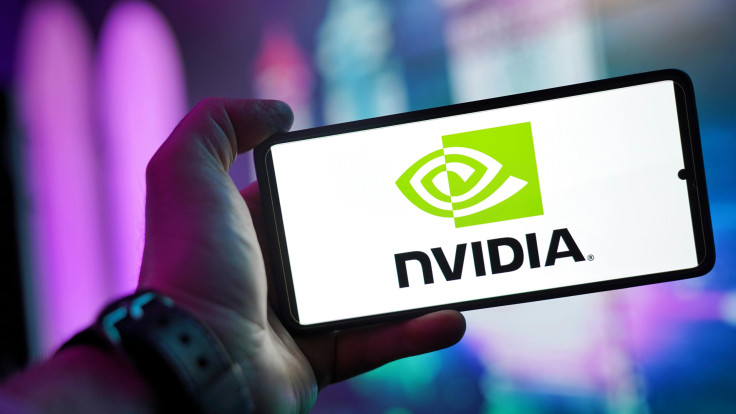Howard Lutnick's Political Ties May Have Swayed Nvidia's AI Chip Sales to China — Report Claims
CEO Jensen Huang confirmed receiving assurances for licenses, a win after intense lobbying

A backroom political deal may have just unlocked billions in frozen AI chip sales to China, with whispers linking Howard Lutnick's Washington connections to Nvidia's sudden pathway back into the world's second-largest economy.
The semiconductor giant's chief executive, Jensen Huang, announced from Beijing on Wednesday that his company stands ready to 'accelerate the recovery' of China sales, marking a dramatic reversal in the tech cold war that has defined recent US-China relations.
The stakes couldn't be higher: Nvidia sits on $4.5 billion worth of specialised H20 processors gathering dust in warehouses since Trump-era export restrictions slammed shut the doors to Chinese buyers last spring.
Now, following what insiders describe as a carefully orchestrated diplomatic breakthrough between Beijing and Washington, those same chips explicitly designed for the Chinese market may soon flow again.
Huang's confidence that export licences would 'come through very shortly' suggests the political machinery is already in motion, though he admitted the crucial paperwork from Washington hadn't yet materialised.
Nvidia's China Comeback: A Policy Reversal
Speaking at a press conference in the Chinese capital on Wednesday, Huang noted that the company had not yet received export licences from Washington to restart shipments of its H20 product. However, he expressed confidence that these approvals would 'come through very shortly.'
Nvidia had recorded a $4.5 billion (£3.36 billion) writedown in its April quarter. This came after the Trump administration tightened export restrictions on advanced chips, leaving the company with a substantial inventory of H20 chips that it could no longer ship.
'Some of what we wrote off is hard to recover, but what we put on reserve will not be scrapped permanently,' the top executive said.
He also said that the company's final decision on resuming output of its earlier Hopper generation, of which the H20 was a part, hinged on receiving customer orders.
'The customers' old orders have been cancelled. Their demands may have changed. We have to start the supply chain,' a process he stated requires nine months.
Lobbying Success: How Nvidia Influenced Policy
Earlier, Huang had meetings with government officials before delivering a speech at a supply chain conference in the capital. There, he commended China's manufacturing prowess and the AI advancements made by companies like DeepSeek and Alibaba.
Huang's visit to Beijing follows a significant policy shift from the Trump administration. The company had received assurances that it would approve licences for its H20 chip, marking a dramatic reversal of the April ban on exporting its dedicated AI product for China.
AI Chip Diplomacy: Washington's Strategic Pivot
Commerce Secretary Howard Lutnick announced on Tuesday that Washington's shift in policy was a result of recent trade talks. These discussions took place between American and Chinese representatives in London and Geneva.
I went to DC one week ago, and I told Trump and his cabinet that I was coming to China. He said, 'Have a good trip,' Huang shared during Wednesday's press conference.
'I did not change the president's mind . . . it was completely in control of the US government and Chinese government discussions,' he said. 'Export controls as a pillar of national security and as a regime for global exchange are here.'
Howard Lutnick and the Huawei Question: Unpacking the Deal
The green light to resume shipments marks a notable victory for Nvidia, following an intensive lobbying effort by Huang in Washington. During this campaign, he cautioned that the US risked losing its leadership in artificial intelligence to Chinese companies, including Huawei, if American firms were prevented from sending hardware to the country.
Nvidia also unveiled a new China-specific graphics processing unit (GPU) on Tuesday, stating it fully complies with current export controls, according to a report by the Financial Times.
This announcement follows last week's Financial Times report that Nvidia intended to release an updated China chip, based on its Blackwell RTX Pro 6000 processor. On Wednesday, Huang stated that the new chip was particularly well-suited for automated manufacturing.
Beyond the Ban: Nvidia's Path to Recovery in China
Stacy Rasgon, a senior analyst at Bernstein covering the US chip industry, observed that the White House's shift would enable 'Nvidia to compete in China' and 'preserve their ecosystem advantages.' He highlighted that this shift was expected to increase the chipmaker's profitability through the upcoming year.
'Jensen has been carefully cultivating Trump and members of the administration, as well as laying out the risks of maintaining the ban,' he added.
The H20's performance has been limited, and it faces challenges from local competitors. However, Chinese internet companies are still expected to be eager customers, as they rely on Nvidia's CUDA software and must meet the growing demand for AI workload processing.
Navigating the AI Landscape
Jefferies analysts noted that easing export restrictions would lead to 'improved sentiment' for major players, including Alibaba, Tencent, and Baidu, as more companies accelerate AI adoption across various industries. Fresh GPU supplies, they added, would allow these firms to capitalise on the growing demand for increased computing power.
'Customers across different sectors are adopting AI — not only internet, fintech, education and EV — but also sectors such as manufacturing, which need to use AI and migrate to [the] cloud,' wrote equity analyst Thomas Chong.
Behind this sudden thaw lies a web of influence that reportedly extends from Wall Street to the White House.
For Nvidia, whose share price has made it one of the world's most valuable companies, promising AI dominance, reopening China represents more than recovering losses—it's about maintaining leadership in the global race to power artificial intelligence.
The question now: at what political cost comes this commercial redemption, and who ultimately benefits when technology, money, and power converge in the shadows of international diplomacy?
© Copyright IBTimes 2025. All rights reserved.






















